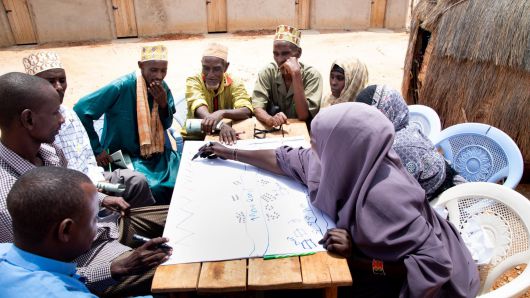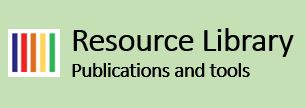27/10/2021 - Passing the Baton, PfR's final report Dialogue & Dissent

For the full report, check out here (for the annex, click here)
Over ten years, Partners for Resilience (PfR) is working with communities, civil society and governments in ten selected countries to increase resilience in the face of rising climate and disaster risks, and to foster systemic change. In these low and lower middle-income countries, climate-related disasters and environmental degradation are leading to significant social and economic costs. Poor and vulnerable people become trapped in a vicious circle. There is limited space for people to raise their voice and make their needs known to decision-makers. To change this, PfR engaged with 1,039 civil society organisations (CSOs). Representatives of women, men, youth and elderly have supported the development of disaster risk reduction (DRR) plans that integrate climate and ecosystems. Once implemented, these plans contribute to strengthening the resilience of vulnerable communities. 630 CSOs have increased their capacity to lobby and advocate for community resilience. This resulted in 63 policies, guidelines and laws taking an integrated, inclusive approach to improving community resilience over the past five years.
PfR strengthened the capacity of civil society to engage in lobbying and advocacy leading to the incorporation of Integrated Risk Management (IRM) in relevant policies, investments and practices, helping vulnerable communities to become more resilient to disaster risk. This was underlined by the external end-evaluation (June 2020): “there is broad agreement that the PfR programme is highly relevant and of added value in line with its objectives.” This was further elaborated upon by the analysis that PfR has to a large extent been successful in strengthening the capacity of CSOs, achieving meaningful results in terms of improved policies and enhanced practices, thereby making communities resilient in the face of increasing disaster risk.
Linking local realities to global dialogues
In the main global policy dialogues (New Urban Agenda, the Sustainable Development Goals (SDG’s), the Sendai Framework for Disaster Risk Reduction and the Paris Agreement on Climate Change) PfR influenced and lobbied on reflecting local realities in global policy dialogues and vice versa. The global policy work draws many lessons from country and regional teams on opportunities and challenges in pushing the disaster risk reduction, climate and environmental agenda through these leading policy frameworks. This on-the-ground evidence strengthens advocacy at the global level where political momentum and financing is being galvanized into local action.
Key examples are the adoption of a resolution on Climate-smart Disaster Law and Policies, Climate and the Environmental crisis recognised as one of the major 5 challenges in the IFRC 2030 strategy at the International Red Cross Conference – which has an impact on 192 national societies globally. PfR helped to shape the Nature Based Solutions for Climate Manifesto – a prominent summit initiative. Furthermore PfR contributed to the commitment to urban resilience, among others through the Water as Leverage programme. PfR underlined the importance of risk-informed decisions for sustainable development and bringing local and national experiences to the international arena. At the 2019 High-Level Political Forum (HLPF) on the SDGs, PfR through IFRC’s privileged position to intervene in closed sessions, highlighted to Member States the close links between disasters and development, calling on governments to implement development initiatives that are socially and environmentally conscious, as the SDG agenda cannot be achieved if maladaptation impacts poor on already vulnerable communities (for further details see chapter 2.1).
Capacity Strengthening and AdvocacyThe ACT for Resilience Toolbox bears witness of the wealth of manuals, guides, checklists, criteria, and other tools that were used and developed in the different countries and programme wide to support advocacy capacity and to guide the integration of IRM in ongoing policy, development, planning and implementation processes from local to national level. Notable examples in the toolbox are the IRM Advocacy Manual, Policy Brief Guidelines, Step by Step Guide to Inclusive Resilience and A Landscape Approach to Disaster Risk Reduction in 7 Steps. These resources will remain accessible on the PfR website and library.
The COVID-19 pandemic from March 2020 onwards, had a large impact on programme planning and implementation. The formation of strong local networks in the past five years enhanced communities’ social structures that have demonstrated their value in the disaster domain and beyond. The support to COVID-19-affected communities (please read the report ‘PfR’s COVID-19 project: bridging response to long-term resilience’ (March 2021)) largely benefitted from the access and capacities that these networks provided and are essential to ‘build back better’.
Local ownership and leadership was also displayed at the PfR virtual global conference named ‘Passing the Baton’. During this knowledge-sharing fair, several speakers reflected on 10 years of PfR: the challenges, the experiences, the learnings, and the results, and how to take the PfR legacy forward in the upcoming decade of action. An inspiring video captures this ownership and global collaboration across CSOs, while the flagship report ‘Local Action, Global Ambition’ details a decade of work and impact by the PfR alliance.
Key achievements and best practises (for details please check chapter 3):
- Uganda Climate Bill: PfR trained 35 members of parliament and government staff on integrated risk management, and strengthened the influencing capacity of CSOs, vulnerable groups and indigenous communities to better understand, analyse and shape this national Bill.
- Now You Hear Us: four short videos show how community members, civil society actors and decision makers interact. They narrate how support to civil society organizations strengthens communities’ voices and fosters successful advocacy with tangible results. In these videos, examples from Haiti, Indonesia, Kenya and South Sudan are captured.
- Camel Caravan Kenya: originally conceived as a one-off event and financially supported by PfR, since 2018 the camel caravan is fully funded by local and national stakeholders in Kenya. Moreover, the caravan has grown into a movement, organized by local CSOs and supported by multiple donors.
Key learnings:
- Importance of localization: the formation of strong local networks has enhanced communities’ social structures that have demonstrated their value in the disaster domain and beyond.
- Diversifying the funding base is challenging: it remains a challenge for (especially smaller) CSOs to diversify their funding base, and a key lesson in this regard is that in the capacity strengthening support it is essential to specifically focus on capacities related to resource mobilisation.
- Working in partnership across levels and programmes: the global focus of PfR has shown to be relevant for linking local needs to national policies and global commitments, enabling evidence-based advocacy at global fora. In future this can be further strengthened ensuring even better participation of national/ local CSOs in global dialogues to ensure their voices are heard and at the forefront of the debate.
- Influencing investments requires a targeted approach: the most significant achievements have been recorded in the domains of policy and practice, whereas in the area of influencing investment, achievements are more limited. Collaboration with the private sector needs specific expertise, a targeted approach and pilots that show the added value of collaboration.
- Integrated solutions are complex and challenging, but necessary to tackle multi-sectoral challenges: more, better and quicker evidence creation is needed (such as the three best practices mentioned in this chapter) and finance that is targeted, long-term, while being flexible, to work across sectors. The challenges that the world is facing are multi-sectoral - as the climate and biodiversity crisis is affecting all walks of life - so development plans, finances and impact cannot be sectoral, and require an integrated approach.
In conclusion
In spite of a very challenging last year of programme implementation due to COVID-19, the Dialogue & Dissent programme was rounded up with an overall sense of positivity and optimism. In most countries results have been impressive and a strong basis for further lobby and advocacy work has been build, paving the way for local organisations to take the PfR legacy forward and to continue promotion of the integrated risk management approach. Although PfR’s application to continue the programme under the Power of Voices facility was not successful, we are confident that local organisations will find ways to continue the promotion of integrated risk management, influencing policies, practices and investments in their context. We would like to thank the Dutch Ministry of Foreign Affairs, especially the departments of Inclusive Green Growth and Social Development, for its collaboration and for the opportunity to invest in dialogues and capacity strengthening, to scale transformational change to achieve humanitarian, environmental and development aims, which is needed more than ever in today’s world.





